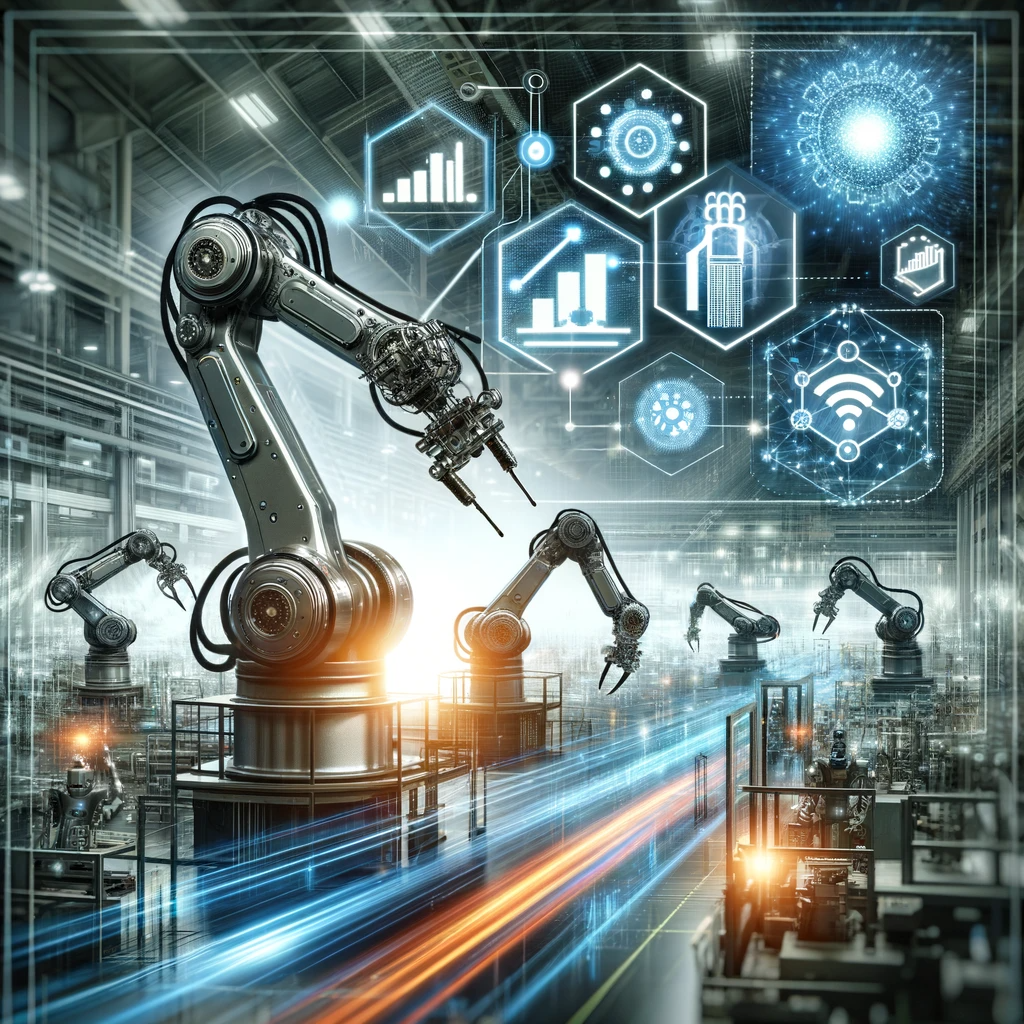Address
304 North Cardinal St.
Dorchester Center, MA 02124
Work Hours
Monday to Friday: 7AM - 7PM
Weekend: 10AM - 5PM
Address
304 North Cardinal St.
Dorchester Center, MA 02124
Work Hours
Monday to Friday: 7AM - 7PM
Weekend: 10AM - 5PM


As the world enters a new era of industrial innovation, Industry 4.0 stands at the forefront, heralding a transformation in manufacturing that is unprecedented in scale and scope. At Makers Matrix, we capture the essence of this revolution, showcasing the journeys and innovations of manufacturing leaders who are embracing this change. Industry 4.0, or the Fourth Industrial Revolution, represents the amalgamation of traditional manufacturing practices with cutting-edge technological advancements. It’s a fusion that is reshaping the industry, driving efficiency, sustainability, and unparalleled connectivity.
The core of Industry 4.0 lies in the integration of the Internet of Things (IoT), Artificial Intelligence (AI), robotics, and big data analytics into manufacturing processes. As we navigate through these changes, it’s vital to understand how they’re impacting businesses and the global economy. With IoT adoption in manufacturing projected to increase by 15.8% annually, reaching $438.2 billion by 2026, according to Business Insider, the implications of this transformation are immense.
In this blog, we delve into the essentials of Industry 4.0, exploring its key components, the opportunities it presents, and the challenges it poses. We aim to provide a clear picture of how embracing this new era can lead to a significant competitive advantage.
Cyber-Physical Systems: The cornerstone of Industry 4.0, where manufacturing equipment is interconnected and communicates via the internet.
AI and Machine Learning: These technologies enable predictive maintenance, quality control, and supply chain optimization.
Additive Manufacturing: 3D printing is revolutionizing product design and prototyping, allowing for more customization and shorter lead times.
Augmented Reality (AR): AR assists in maintenance, training, and improving the efficiency of manufacturing processes.
Increased Efficiency and Productivity: Automation and AI-driven analytics significantly enhance operational efficiency and reduce downtime.
Personalization and Flexibility: Industry 4.0 enables manufacturers to offer customized products without compromising on speed or cost.
Sustainability: Energy-efficient technologies and optimized resource management contribute to a smaller environmental footprint.
However, challenges like the high cost of implementation, cybersecurity threats, and the need for a skilled workforce cannot be overlooked.
Global Competitiveness: Companies adopting Industry 4.0 technologies are seeing a 20-50% reduction in machine downtime and a 10-30% increase in productivity, according to PwC.
Economic Boost: Deloitte reports that smart factories could add $1.5 trillion to the global economy by 2023.
At Makers Matrix, we not only spotlight the technological advancements of Industry 4.0 but also the human stories behind these innovations. Our platform is dedicated to inspiring and educating the manufacturing community, sharing the real-life experiences of those at the heart of this industrial metamorphosis.
Discover more about the transformative power of Industry 4.0 by visiting Makers Matrix.